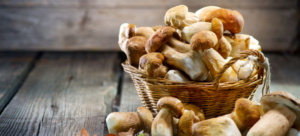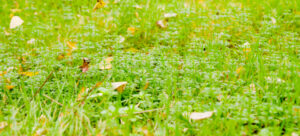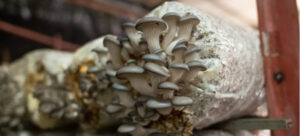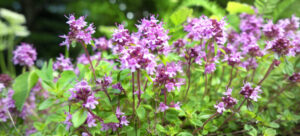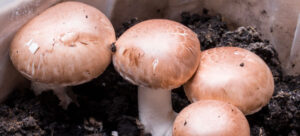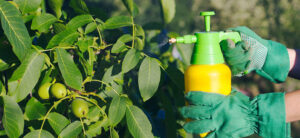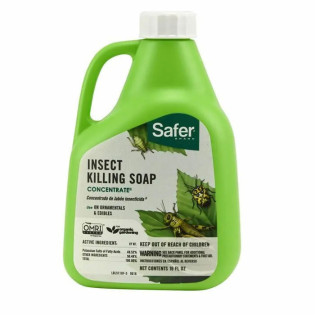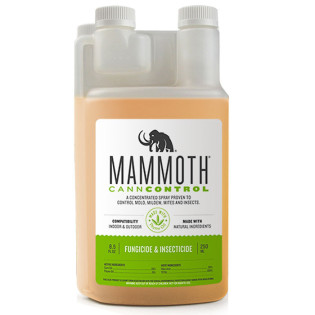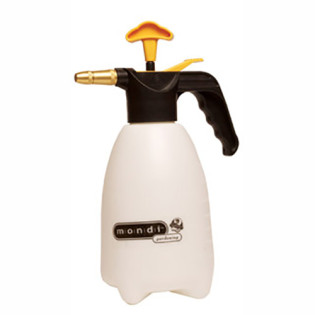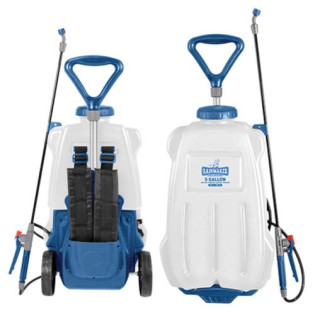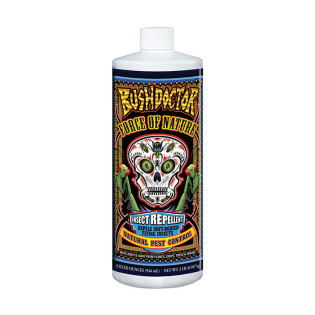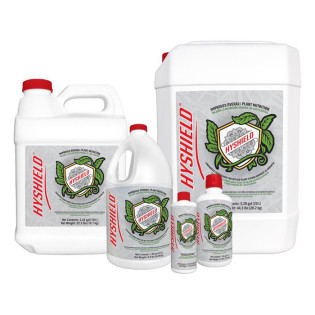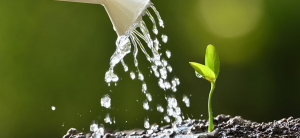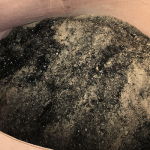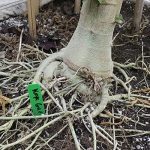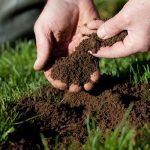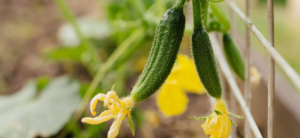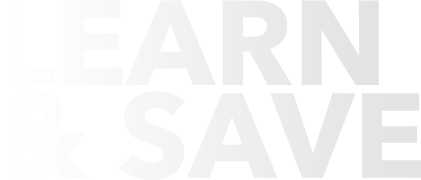
Is it time for you to clean up your garden? If so, you may want to consider learning how to use insecticidal soap on plants. “Clean the garden?” you might ask, scratching your head. “Like scrub my plants?” Sort of - but not quite.
Insecticidal soap is a more natural, tried, and true insecticide. In the old days, gardeners would combine Fels-Naptha soap with boiling water. This created an effective remedy against all manner of garden pests.
The best part about using this form of pest & disease prevention? You can keep your plants healthy and happy while keeping yourself, the environment, and anyone who consumes your plants safe.
If you’re wondering how to use insecticidal soap on plants, don’t worry - it’s not complicated. We'll explain why you should consider this treatment method. And, we'll even teach you how to use insecticidal soap safely & effectively.
Then, we'll help make your shopping experience quick and hassle-free. We're going to share the three best soapy water bug sprays for plants currently on the market. We've got a lot to cover. So, let's begin by explaining what insecticidal soap even is!
What Is Insecticidal Soap?
Insecticidal soap bug sprays for plants are an organic alternative to synthetic chemical pesticides. In our opinion, these should be a staple in any all-natural, organic garden.
These soapy water sprays are most effective against soft-bodied insect pests such as aphids and mealybugs. They're made out of potassium salts of fatty acids. This product is essentially derived from plant oils. As you can imagine, this makes it a far more holistic option than synthetic products.
It is a pure soap that is made with no other ingredients besides those long-chain fatty acids. Insecticidal soap is better for plants than chemical alternatives. A huge reason for this is that it does not disrupt soil volatility or fertility. This helps keep your soil healthy for future crops.
A Versatile, Safe Pest Control Option!
Insecticidal soap bug spray for plants is also effective against some kinds of fungal infestations. This includes notorious fungal problems like powdery mildew. Plus, these soapy water blends are non-toxic to humans or other mammals.
They won’t harm earthworms or beneficial bugs (bees, hoverflies, ladybugs, lacewings, and butterflies are all resistant to insecticidal soap). And, these bug sprays for plants are completely biodegradable. This means they won’t persist in the environment.
Another benefit of insecticidal soap (and one that is often overlooked) is that it can be used on food crops right up until the day of harvest. This is contrary to other kinds of pesticides. Many synthetic pesticides require a withdrawal period. This is a timeframe that must occur before the fruits or vegetables are safe to eat.
Insecticidal soap kills on contact and is only active when it is wet. Once it dries out, it loses its potency. That means it has no residual effect.
Insecticidal Soap vs Neem Oil - Which Is Right For Me?
Maybe you're familiar with neem oil. Perhaps you've even used it in the past! But if not, this is another awesome natural pesticide/fungicide. But when it comes to insecticidal soap vs neem oil, which is better? Are they interchangeable?
The answer is, it depends on what you're using the product for. Neem oil is a bit stronger. It's more effective as a preventative bug repellent and can be used regularly as a natural pesticide.
Soapy water is not effective as a preventative treatment, unlike neem oil. but is quite a strong solution if you have an active insect infestation plaguing you. If you want to learn more about insecticidal soap vs neem oil, you're in luck. We wrote a complete guide on using neem oil in the garden. Take a look!
How Long Does It Take Insecticidal Soap To Work?
Insecticidal soap works almost instantly, killing insects as soon as they come into contact with it.
You may need to reapply your solution of insecticidal soap several times to notice a major impact on your plants, though, as you’ll have to come back several times to make sure all of the pests have been killed off.
In most cases, 24 hours is all it takes to see a difference after applying insecticidal soap. In the most severe cases, an infestation can be taken care of by applying the product just once every three to six days.
How Often Should You Use Insecticidal Soap?
Insecticidal soap is highly effective, but it generally should not be used as a preventative measure. Like we just said in our quick breakdown of insecticidal soap vs neem oil, it isn't great for that purpose.
That's because it can be somewhat harsh on your plants when used consistently. Occasional applications (less than once a week) aren’t likely to produce any adverse reactions, like foliar damage. However, being too aggressive with your insecticidal soap use can be problematic.
How To Use Insecticidal Soap For Different Plant Problems
Soapy water bug sprays for plants work in several different ways. For starters, the soaps dry out the exoskeletons of these insects, causing their cells to collapse.
This is followed by suffocation of the bug, as the oils in insecticidal soap interrupt the ability of pests to breathe. But, what bugs specifically can you be controlled with this technique?
Which Pests Can Be Controlled With Insecticidal Soap?

There are certain pests that can be controlled fairly effectively with this type of product. There are also some pests that will be fairly resilient to insecticidal soap. Here are some pests you can control:
- Earwigs
- Mites
- Thrips
- Scales
- Fleas
- Chiggers.
This garden care technique is less effective against chewing pests like scales and caterpillars.
In addition, insecticidal soaps should not be used on certain plants. These include gardenias, peas, ferns, cucumbers, and beans. All of these are more susceptible to damage from the soaps.
How To Apply Insecticidal Soap To Control Pests

Regardless of the type of pest you wish to target, you will apply the product to your plants the same way. You'll need a garden sprayer to apply the soap, so make sure you have one on hand.
You can use a premade insecticidal soap (the easiest, most convenient route for most gardeners) or make your own with store-bought soap, provided that the soap does not have any additives. We will cover more on how to make your own insecticidal soap later on.
Some gardeners add extra oil (about one cup) to improve the effectiveness of their spray, but this is not necessary.
Add Bacillus Thuringiensis For A Boost
However, you can always add other additives like bacillus thuringiensis or copper fungicide if you need to prevent or treat other kinds of pests or fungus infestations not controlled by insecticidal soap, too.
Plan to use the solution immediately, as its potency won’t last forever. To spray, soak both the bottom and tops of leaves, ideally targeting any insects you can see.
Test the spray on just a few leaves before you apply it to the whole plant. It’s important to note that, unlike other pesticides, insecticidal soap needs to make contact with the pest to be effective.
It will be most effective if it is applied when it’s wet out. Therefore, you should treat plants first thing in the morning or in the evening. That way, the solution won’t evaporate as rapidly as it might during the heat of the day.
How To Stay Safe While Applying Insecticidal Soap
There are a couple of other considerations you should take into advisement when using insecticidal soaps.
Although insecticidal soaps are not as toxic to humans and animals as most other pesticides, they can be damaging to some sensitive plants, especially if any kind of oil is added to the spray.
To get around this, you should always apply insecticidal soap to just a small portion of the plant first to make sure it works and does not produce any negative side effects.
Wait a minimum of 24 hours after applying it to make sure issues like wrinkling, spotting, and browning do not arise.
Do You Need To Rinse Off Insecticidal Soap?
Insecticidal soap is generally effective after just a few minutes. Although you do not have to rinse off the soap after using it, it might be beneficial for you to do so.
However, you shouldn’t rinse right away. As we already mentioned, the soap is only active while wet. So make sure the treatment has time to be effective.
Leave the soap on your plants and only rinse after a few applications. This will help prevent fatty acids and soapy residues from building up on your foliage.
If you’re applying insecticidal soap to plants beneath overhead irrigation systems, water the plants before you spray or wait until it has dried completely, only rinsing once every 3-4 applications.
What Are The Best Insecticidal Soaps To Use On Plants?
When you’re shopping for insecticidal soaps to treat insect problems on your plants, you should look no further than Hydrobuilder.com
Safer Brand Insect Killing Soap Concentrate
Our favorite soapy water bug spray for plants is Safer Brand Insect Killing Soap Concentrate. This soap uses potassium salts of fatty acids to weaken the protective outer shell of many kinds of soft-bodied insects. You can apply it once every week to ten days when insects are present. It can be used right up until the day of harvest and this 16oz bottle makes up to 24 ready to use doses!
NPK Industries PM Wash
One final option is the NPK Industries PM Wash. This insecticidal soap is a unique product that is particularly effective against mold and mildew. It is used by many growers to clean plants that are being grown in particularly humid environments. As with the Safer Brand concentrate, it can be used up to the day of harvest - you can even use it to wash your plants during the harvest!
Mammoth Microbes CannControl
The Mammoth Microbes CannControl is one of the best insecticidal soaps out there. Available in several sizes, from 250mL all the way up to 5 gallons, it can be used in any organic garden.
It’s effective in all kinds of growing media and at various growing stages and helps to reduce transpiration and support nutrient uptake (in addition to treating pest problems).
It can be used against other kinds of pathogens and offers results almost immediately. While typical plant wash products shouldn't be routinely used unless a pest problem is present, CannControl offers tons of benefits on top of killing bugs.
How To Make Your Own Insecticidal Soap Bug Spray For Plants (DIY)
Want to craft your own soapy water bug spray for plants at home? While we definitely recommend using one of the best insecticidal soap products which we mentioned above, sometimes you run into an issue and don’t have access to these products right away.
Instead, you can try and learn how to make insecticidal soap with just a few different ingredients. If you’re lucky, you may not even need to leave the house. Many of these are household items!
Start With An Oil Base
To make your own insecticidal soap, start with an oil base. This can be a variety of choices depending on what you have on hand. Here are some good options:
- Vegetable oil
- Peanut oil
- Corn oil
- Soybean oil
Add An Organic, Pure Soap
The recipe we recommend following calls for one cup of whichever oil you opt for above, with one tablespoon of organic soap.
A really good option is Dr. Bronner’s. This brand uses pure, natural ingredients. They have a reputation for being as good as it gets from a natural soap perspective. If needed, you can try using dishwashing soap. Just make sure it doesn’t contain any degreaser, bleach, or anything made for an automatic dishwasher.
Mix These Two Ingredients Thoroughly & Add Water
Once you have your initial mixture ready to go, add two teaspoons of it to every one cup of warm water. Then, add all this into a spray bottle. Be sure to make this in small batches, as it doesn’t store well. You should really only make enough to use in a one-day application.
And there you have it - you've made your own soapy water bug spray for plants! It's really that easy. And the best part is that this natural pesticide can help you retake control of your infested plants. Whether you're fighting spider mites or aphids. No soft-bodied pest stands a chance against this soapy water bug spray for plants!
Final Thoughts On How To Use Insecticidal Soap On Plants
If you’re looking for effective organic solutions for your garden, you’ll find no shortage of information out there. Unfortunately, many of the techniques, tips, and products recommended are no more than snake oil, making promises to boost your garden’s success that they just can’t keep.
When it comes to insecticidal soap, that’s definitely not the case. This should be one of your go-to gardening treatments and practices. Whether you’re growing indoors or outdoors, this remedy is an effective way to eliminate and even prevent the most common pests and diseases without harmful chemicals.
Now that you know how to use insecticidal soap on plants, your chances of saving your garden are much higher. You can use this soapy water bug spray for plants to naturally eliminate most soft-bodied pests. You even know the differences between insecticidal soap vs neem oil, and when to use each.
If you’re in the market for organic pest control methods, be sure to try any of these outstanding garden care products by Hydrobuilder. They’re effective, affordable, and easy to use - and backed by Hydrobuilder’s solid reputation for distributing quality garden supplies.
